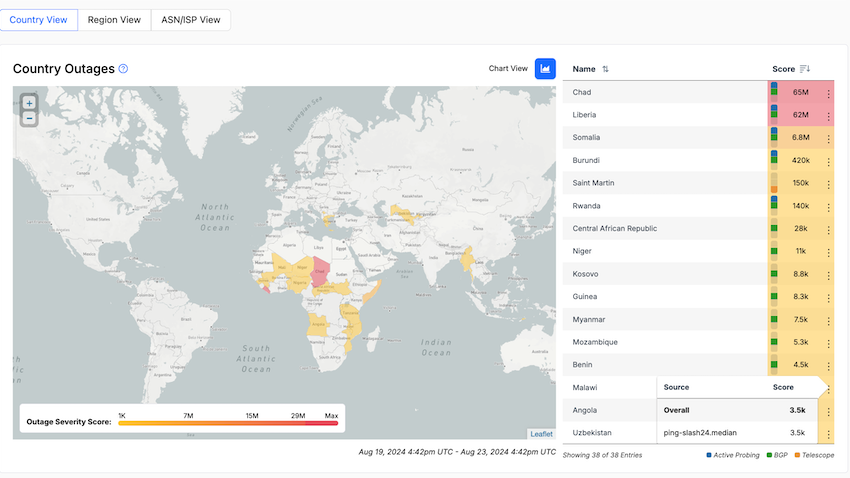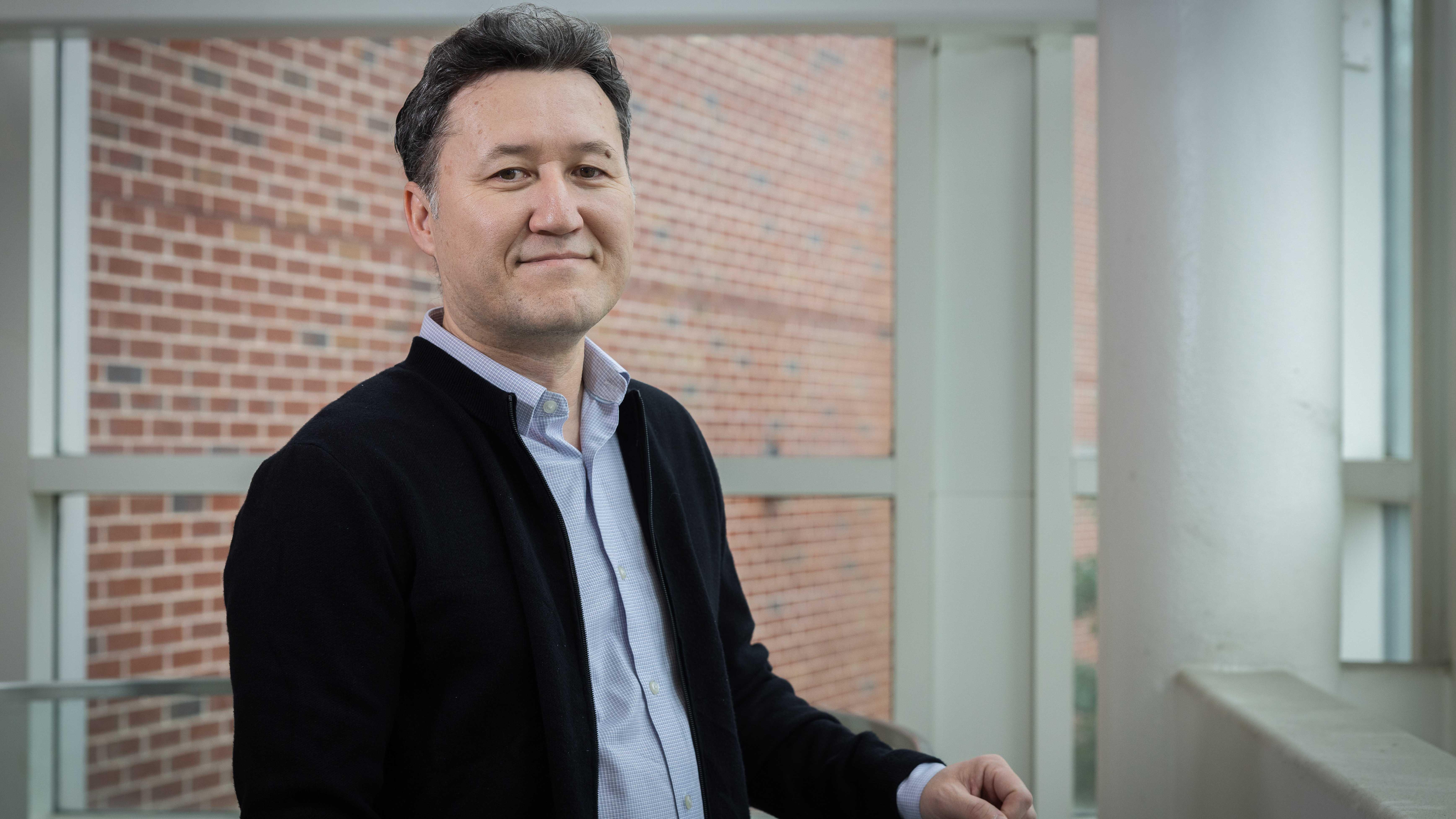
Researchers Receive $1M+ to Track Internet Outages, Censorship in Iran and Elsewhere Around the World
Authoritarian regimes worldwide have weaponized the internet, using censorship, restricted access, and outages to control their citizens.
To counter these tactics and raise awareness, researchers with Georgia Tech’s Internet Intelligence Lab will use $1.4 million in new grants to advance the state-of-the-art in global internet connectivity detection, tracking, and analysis.
The Open Technology Fund awarded Associate Professor Alberto Dainotti and Research Scientists Zachary Bischof and Amanda Meng $960,840 to improve research infrastructure and methods to study internet censorship worldwide.
The funding supports efforts to improve the coverage and accuracy of IODA (Internet Outage Detection and Analysis). Developed in the Internet Intelligence Lab, IODA tracks internet outages worldwide caused by natural disasters, configuration issues, or censorship. IODA collects this data and provides it to the public on its website.
Over the years, IODA has provided data to the United Nations, Amnesty International, and other international organizations. Meng said one of their goals is to make IODA’s measurement data more accessible and usable for activists, intergovernmental organizations, and others in the internet freedom community.
“We want to enhance our tool to further enable them to monitor and track internet connectivity so that they can use that as evidence in their advocacy efforts,” she said.
Meng and her colleagues will also use the grant to pilot two projects with DataWorks. Housed in Georgia Tech’s College of Computing, DataWorks hires and trains people from the local community and provides data services to non-profit organizations.
DataWorks employees will help the researchers to:
- Pilot a global outage tracking team.
- Clean and complete historic outage dataset which contributed to groundbreaking research published at SIGCOMM on political and technical signatures of internet shutdowns.
The second grant, totaling $499,442, was awarded to Meng by the U.S. State Department. This funding supports a project to develop systems and processes that can provide a more coordinated and collaborative way of tracking censorship events in Iran. This award is Meng’s first federal grant as lead principal investigator.
Collaborating to Track Censorship
Along with these projects, the IODA team collaborates with other censorship measurement groups. Recently, the IODA team worked with M-Lab, who secured funding from the Open Technology Fund, to coordinate a series of meetings to bring the internet measurement community together to share research and best practices and learn from each other.

The first of these meetings convened at Georgia Tech in June. Along with the IODA team, attendees included:
- Censored Planet, a University of Michigan research group
- The Open Observatory for Network Interference
- M-Lab
- Cloudflare
Meng says the overall goal of the first meeting was to identify ways in which these groups could coordinate more closely and become more knowledgeable about one another’s work.
“We are a set of groups that work together to verify outages or shutdowns as soon as they happen by comparing our data and making sure that we’re seeing similar patterns,” Meng said.
“While we work together in that way, we realized there was a lot that we didn’t know about each other’s datasets, and we could learn from each other in terms of infrastructure or how we go about detecting outages and censorship events.”
Georgia Tech will host the next meeting in December.


